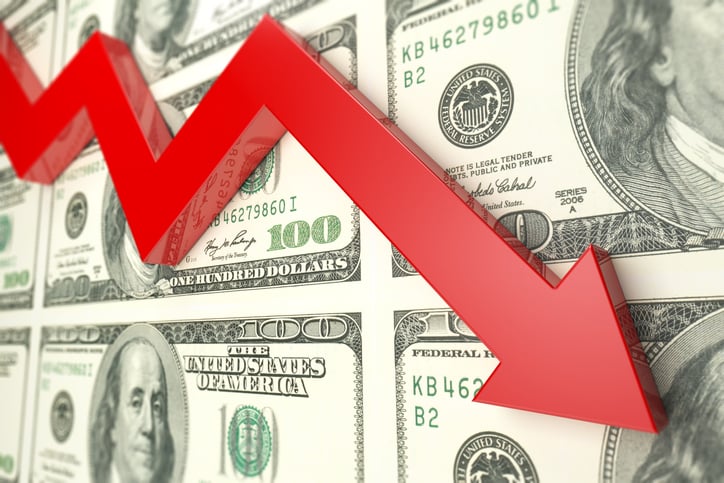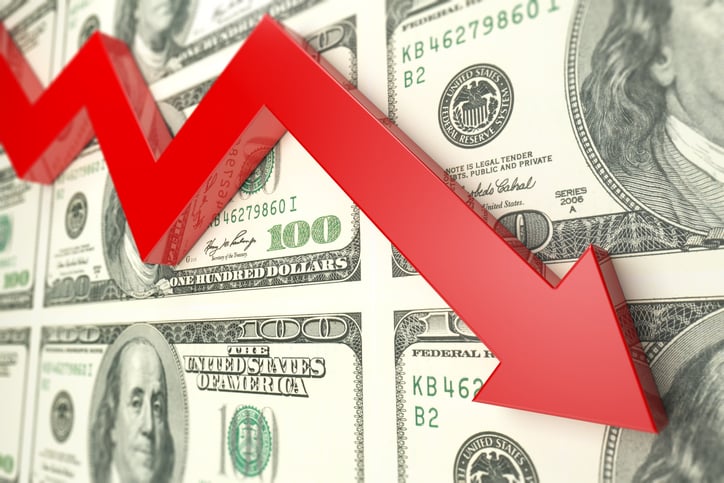Tuesday was a bad day on Wall Street, with investors struggling through a downbeat assessment of the likely path of the manufacturing economy for the foreseeable future. Major indexes suffered losses of more than 1%, casting a shadow over the beginning of the fourth quarter of what until now has been a strong year for the stock market. Some companies saw even larger losses. TD Ameritrade (AMTD +0.00%), Bausch Health (BHC 1.05%), and Aurora Cannabis (ACB 2.26%) were among the worst performers. Here's why they did so poorly.
Broker wars hurt TD Ameritrade
Shares of TD Ameritrade plunged 26% after the brokerage company faced a competitive onslaught from one of its biggest rivals. Charles Schwab said today that it would eliminate commissions on most retail trades, including stock and exchange-traded fund purchases and sales. The move will hurt Schwab's business, but TD Ameritrade relies to an even greater extent on the revenue from trading commissions for its overall financial success. With most people figuring that the entire industry will have to follow Schwab's lead in the long run, the move lower for TD Ameritrade reflects the financial hit that it will likely suffer in the near future.

Image source: Getty Images.
Bausch heads for litigation
Bausch Health saw its stock drop 10% following its announcement that it will file patent infringement lawsuits against the Sandoz division of Novartis. The suit concerns diarrhea drug Xifaxan, which Bausch believes Sandoz infringed upon when Sandoz filed an abbreviated new drug application for a generic version of the drug. Bausch has faced similar issues before, and its past resolution of disputes ended up being favorable for the company. Yet investors are fearful that it might not be as lucky this time with Sandoz, and that could create an overhang on Bausch's stock price until the matter gets resolved.
Aurora can't find its groove
Finally, shares of Aurora Cannabis finished down by more than 6%. The marijuana company fell to levels it hasn't seen since late 2017, reflecting overall weakness in the pot industry and fears about the pace of future revenue growth. The rollout of recreational cannabis in Canada hasn't had the immediate impact on Aurora and its peers that many expected, and investors seem to be losing patience with the long-term strategy that Aurora is using. Moreover, with the company facing a debt maturity early next year that will require it to come up with a significant payment, investors are increasingly nervous that the cannabis specialist might be running out of time.








